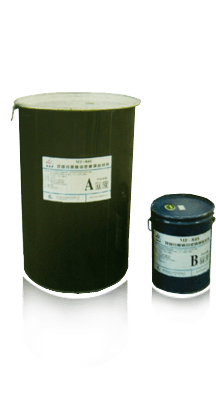- Two Parts Components Polysulphide (Applied by Extruding Machine or Manual) (MF-840)
- Two Parts Components Polysulphide (Applied Manually) (MF-840T)
Two Parts Components Polysulphide (Applied by Extruding Machine or Manual) (MF-840)
Overview

MF-840 Is Suitable For Double Glazing Sealing Applied By Automatic Extruding Machine And Manual As Well
MF-840 is solvent free, two components and room temperature cured polysulfide sealant. It has excellent adhesion to most building materials such as glass, aluminum alloy, galvanized-steel and so on. The product is formulated to facilitate optimal performance on both mechanical and manual application equipment. MF-840 is used for the manufacture of IG units (IGU) or double glazing as a secondary seal in conjugation with butyl as the primary sealant. MF-840 can also be used singly as primary seal without butyl.
MF840 two parts polysulfide sealant is used for secondary or sometimes, primary seal of insulated glass and is applied either by automatic extruding machine or by manual
Features
CHARACTERISTIC
MF-840 is a two parts component sealant cure at room temperature. It is good at adhesion and has excellent resistance to air aging.
It is free of solvent with low boiling point and it has no pollution to the environment.
APPLICATION
MF-840 is mainly applied in the sealing of IG insulated glass for building, construction, transportation and refrigeration/freezing/chilling industries.
NOTES
Polysulfide sealant is not recommended to be used together with silicone sealant, or adhesion would be affected. The operating temperature should be at least 5℃ or above, or curing time and adhesion would be affected.
APPLICATION METHODS
Surface cleaning
Surfaces where polysulphide shall be applied must be cleaned, dried and free of grease.
Mixing
Part A and Part B must be mixed according to the designated ratio, A:B = 100:6-14. Curing speed can be adjusted (the larger the Part B, the faster the curing time and, vice versa). Part A and Part B should be mixed thoroughly until there is no chromatic aberration.
Sealant applied direction
The sealant is always applied along one direction to prevent any bubbles from creating.
Specifications
| Items | Description | Specifications | ||
| Applied by Extruding Machine | Applied Manually | |||
| 1 | Appearance | Part A | White, ropy paste | White, ropy paste |
| Part B | Black, ropy paste | Black, ropy paste | ||
| 2 | Viscosity (Pa·S) | Part A | 400 - 650 | 180 - 450 |
| Part B | 50 - 200 | 50 - 250 | ||
| 3 | Pot Life (min.) | ≥ 20 | ≥ 15 | |
| 4 | Tack-free Time (hrs) | ≤ 2 | ≤ 3 | |
| 5 | Sag (mm) | ≤ 1 | ≤ 1 | |
| 6 | Tensile Strength (MPa) | ≥ 0.60 | ≥ 0.40 | |
| 7 | Hardness (Shore A) | 5 hrs | ≥ 25 | ≥ 15 |
| 24 hrs | ≥ 35 | ≥ 25 | ||
| 8 | Agglutinated Time (hrs) | ≤ 24 | ≤ 48 | |
| Remarks | ||||
| ● | Meet JC/T486 and GB/T11944 standards | |||
| ● | Laboratory condition shall be 23 ± 2℃, 50 ± 5% relative humidity and mixture rate is A:B = 100:10, specimens for testing tensile strength should be stored for 7 days at this conditions. | |||